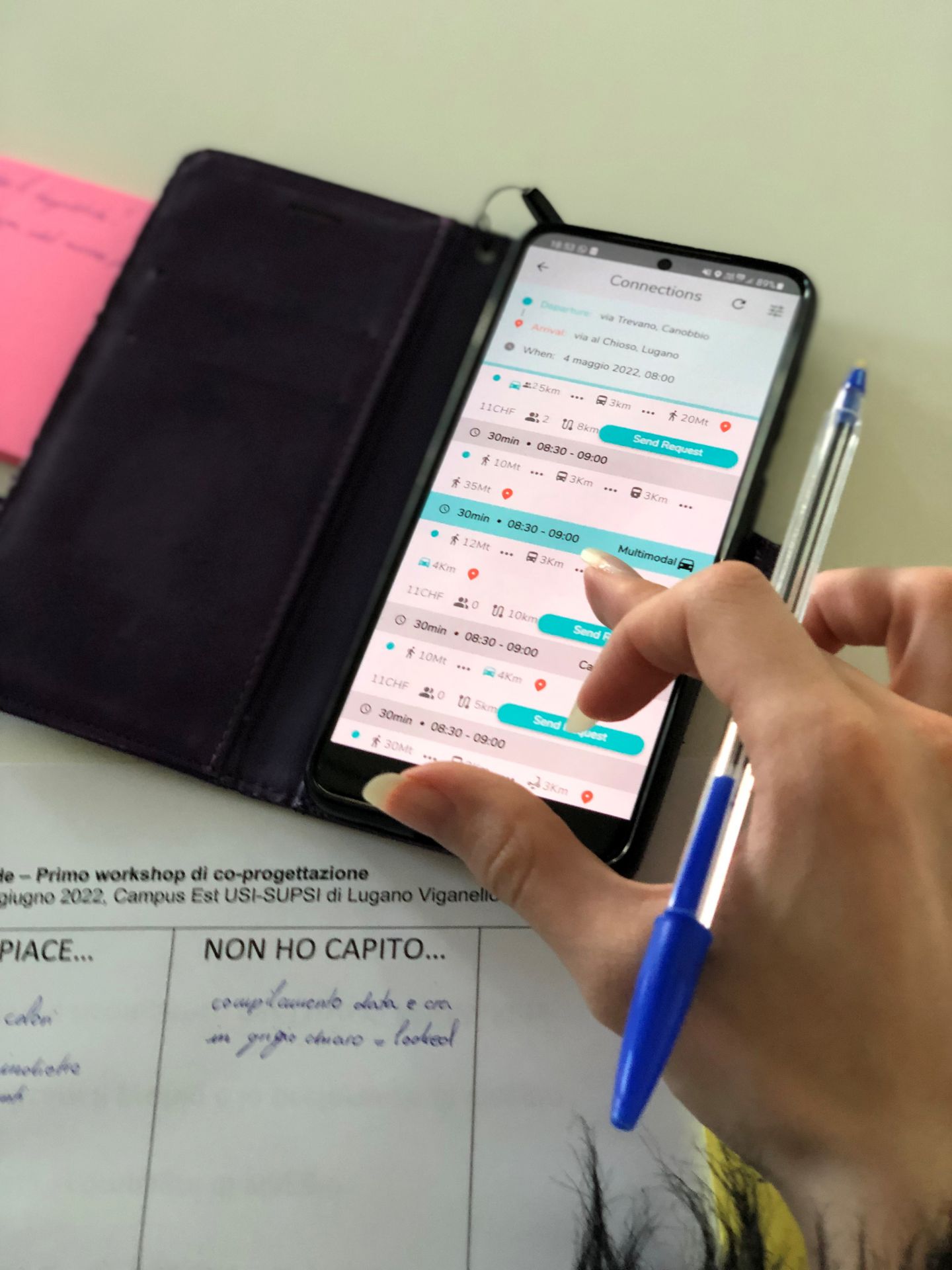MixMyRide – Mixing public transport, carpooling and active mobility to reduce solo car use
Jahr: 2023

Ziele/Ideen
How to eradicate the current dependence on individual car use is still an open challenge in many urban contexts. Door-to-door car routes may in be fact perceived as more convenient than public transport car routes, due to their lack of frequency, spatial coverage, flexibility and timeliness of interchanges. Active mobility choices (i.e. non-motorized transport, such as walking and cycling) may also be perceived as unfeasible alternatives, when travel distances are long, cycling lanes are not available, or the topography is not flat. Moreover, despite its high potential impact, neither carpooling (also known as “ride-sharing”) managed to take off as a large-scale alternative for short-range urban trips.
Kurzbeschreibung
MixMyRide develops a multimodal trip planning app, which has public transport as its backbone, and exploits carpooling and active mobility as opportunities to extend public transport networks. The platform uses public transport data, dynamic carpooling and bike-sharing data, and artificial intelligence algorithms to match the mobility demand and offer. It allows to plan and book multimodal trips that combine walking and public transport routes with cycling routes and rides offered by other citizens (carpooling), thus creating an innovative Public-Private-People Partnership for the co-production of a new mobility service, which offers multimodal, time-effective, and flexible on-demand mobility options. The platform is tested in three one-year long, large-scale real-world trials, run in the regions of Lugano, Winterthur, and Geneva. Its behavioural effects on mobility, energy demand, carbon emissions and more generally on living and working social practices are assessed through a mixed method approach.
Resultate
MixMyRide is developed and field tested in a three-year project. We are currently halfway the project: in the first year, the features of the MixMyRide app were designed, by adopting a co-design, living lab approach that engaged local mobility stakeholders and experts and also interested citizens, and the related artificial intelligence algorithms were developed (matching of demand and offer to find multi-modal mobility solutions that include car-pooling and active mobility rides).
The app is currently being tested in three Swiss regions (Canton Ticino, Geneva and Winterthur-Zurich). Analyses of the impact, in terms of reduced car-based trips and the corresponding energy savings, will be available in Spring 2024.
Additional benefits, measured through a two-wave before-after survey targeting all app users, will also assess the effect on individual wellbeing.
Partner
IDSIA USI/SUPSI – Dalle Molle Institute for Artificial Intelligence
ZHAW- Institute of Sustainable Development (INE)
BePooler, European Multimode Commuting Platform
Citec, international mobility engineering and cons
Lugano Living Lab – Città di Lugano
WinLab – City of Winterthur
SUPSI – University of applied sciences and arts of Southern Switzerland
